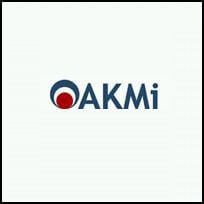In 2009 the MFIs in 4 towns in South Karnataka faced the problem of mass default. This has been widely publicized in the press & and industry. Based on the discussions AKMI had with the RBI in Bangalore, we commissioned an independent study & report by two of the most respected institutions at national & international levels: EDA-Rural and CGAP respectively.
Download the report at the link below
Karnataka Microfinance Report 2010 By AKMI – A Report highlighting the role of Competition and External Agents in the 2009 Delinquency Crisis among Microfinance Institutions in Southern Karnataka
The objectives of the study were:
• To get a clear independent/unbiased picture, analysis, and recommendations of the crisis from industry experts in order to work out constructive solutions. This has important lessons for the microfinance industry. These kinds of events have occurred in other parts of India and the world. • Second, both the national & international press had been publishing sensational articles based on little or partial knowledge of the issues involved. This report should bring clarity. There are a number of key issues & recommendations for MFI’s which are highlighted in this report:
Key Issues
- Aggressive growth of MFIs in terms of outreach leading to dilution of processes & disciplines in acquiring customer outreach inherent in the group lending methodologies. This resulted in the proliferation of agents in sourcing customers and in some cases phantom customers were used by fraudsters which triggered the crisis as is the case in Kolar. The lessons have been learned by MFIs and disciplines have been tightened.
- Overextension of credit through multiple lending: A small section of the customers had over-borrowed and were unable to repay. However as indicated in the research done by CGAP, in other districts like Davangere & Nanjungud where levels of multiple lending is higher did not result in mass default. Their conclusion is ‘multiple lending per se is not responsible for the crisis’. As will be observed on careful analysis of the report that the crisis was a result of not only undisciplined lending to some sections of the customers but issues involved: social (gender equations in families), economic (downturn of silk industry), vested business interest (money lender cum silk reeling businessmen) and communal organization as in Mysore who took advantage of the situation. The MFIs are bound by the Code of Conduct laid out by the Microfinance Institutions Network (MFIN) in terms of restricting numbers of lenders to a maximum of 3 and not exceeding a total amount of group lending to Rs. 50,000.
- Coercive Collection Practices: The goal for zero delinquency & group guarantee has led to practices where the entire customer groups have to stay in the weekly meetings for extended hours, thus disrupting family and professional life. MFIs are adapting to processes diluting the group guarantee and introducing practices that do not inconvenience customers. This is also part of the RBI, AKMI, MFIN & Sa-Dhan code of conduct which is being enforced.
- Not Re-financing loans for customers with genuine economic or family problems: Increasingly progressive MFIs are sensitive to such issues and have adopted these practices to reschedule these loans.
- Customer Oath invoking Hindu Goddess: Oath-taking is an integral part of the credit discipline and practiced in many countries including Grameen Bank in Bangladesh. Most MFIs are secular and Gods to be invoked are customer’s choices based on their religion. The oath includes not just repaying the loans taken but to use the money for the family’s welfare and educate all their children. This practice has been misinterpreted by those who have vested interest.
- Not working with Community Leaders to resolve local issues: This is specific to Kolar and as indicated in the report subsequently it was implemented by AKMI in Siddlaghata & Ramnagara. It is unfortunate that MFIs had to resort to local authorities in cases of physical violence against the staff & destruction of property, as was the case in Kolar.
Recommendations:
- Sharing of information & through credit bureau: This process has already started through the district level chapters of AKMI. MFIN has already initiated the process of sharing customer data through the credit bureau, though this will take a year or two to be effective.
- Individual Lending for customers with large borrowing requirements: A number of MFIs have started the individual lending program.
- Rescheduling loans for customers with genuine problems & working with community leaders in times of crisis: Both these issues have been covered in Issues 4 & 6 above.
